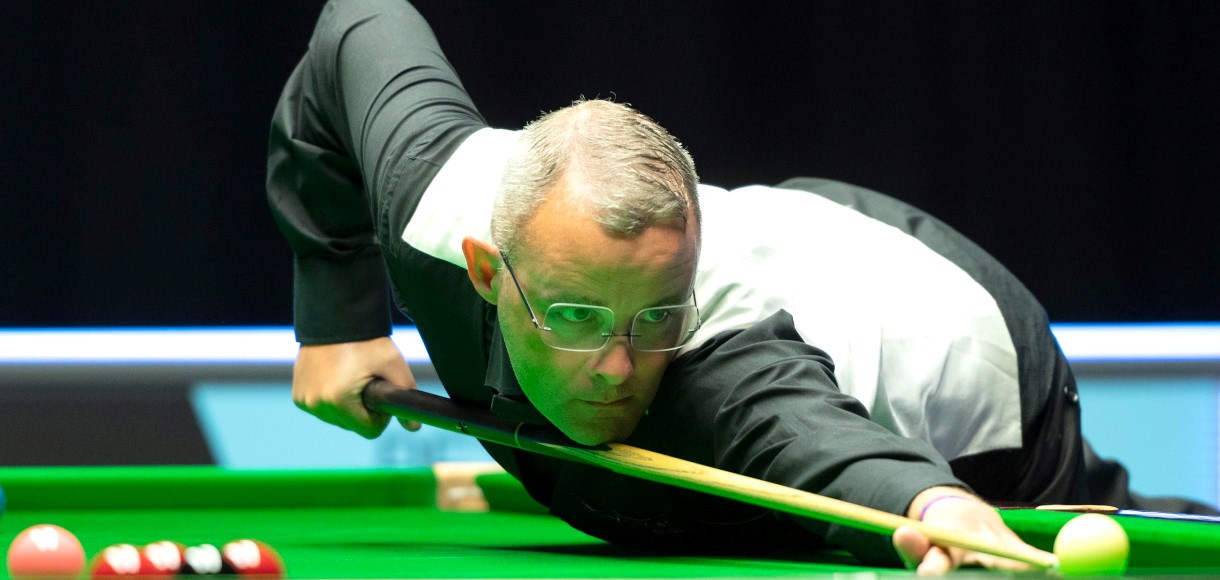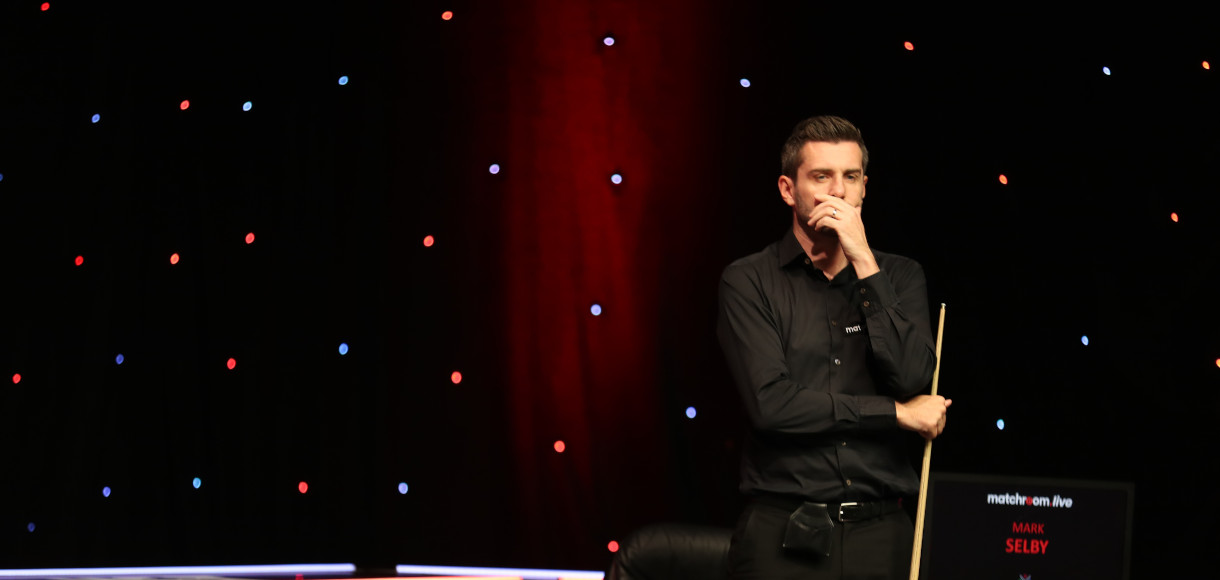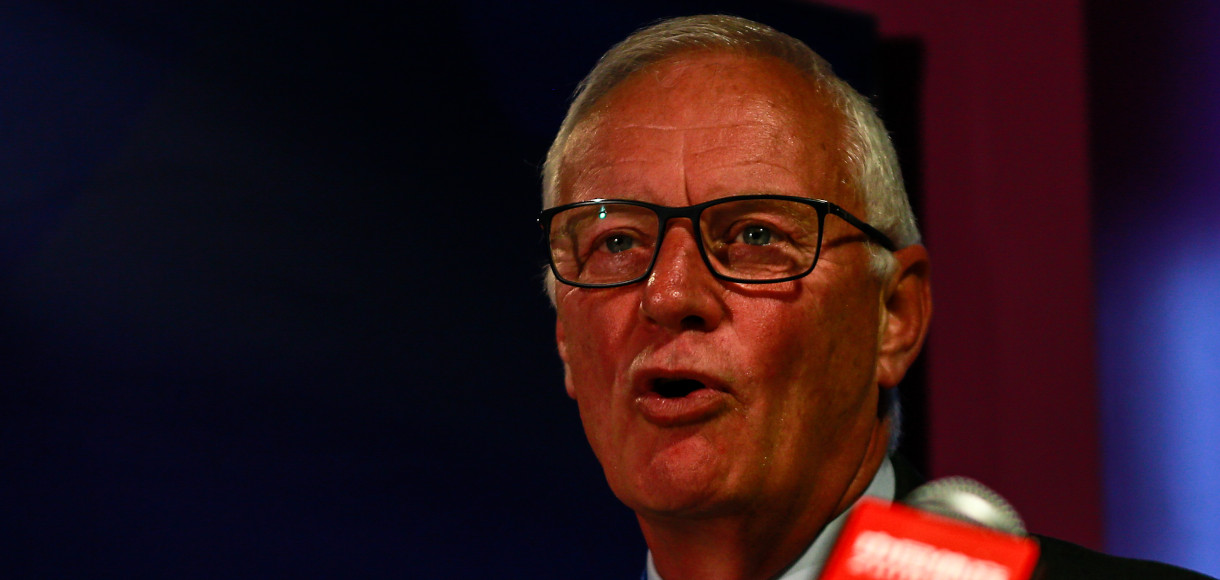How Dennis Taylor's glasses gave Martin Gould 2020 vision

Taylor became 1985 world champion in the novel specs and the iconic design has helped Martin Gould rejuvenate his career in 2020.
You’d think that seeing the balls clearly is a basic requirement in order to make it as a professional snooker player.
Not for Dennis Taylor.
Taylor learned the game, and played the first seven years of his professional career without any aid whatsoever for his poor eyesight. Remarkably, he reached two World Championship semi-finals, as well as reaching the latter stages of several other events.
“My eyesight was always an issue,” says Taylor. “ I had to wear little National Health glasses when I was at school.
“But I couldn’t play snooker with the glasses so I used to take them off and just play with my pretty poor eyesight. I continued like that from nine years old through to 1979, believe it or not.
“It was just what my eyes got used to. A specialist later told me that they had no idea how I’d managed to play so well down the years.”
From there, the story of Taylor’s eyewear is written into snooker folklore.
He played with contact lenses at the 1979 World Championship but, despite reaching the final, didn’t like the feel of them.
He couldn’t go back after that, though – “when I tried again without any specs or contact lenses, the balls looked like rugby balls” – so he had new glasses designed with bigger lenses, allowing him to see through them even when he was down on a shot.
The Northern Irishman would go on to win the greatest World Championship final ever against Steve Davis in 1985 while wearing the iconic specs.
“It was only Jack Karnehm, who worked for the BBC as a commentator and was a professional at the time, who was wearing them,” Taylor says.
“Jack’s family business was making spectacle frames. He hadn’t made any for years, but I went to stay with him in Bracknell while he made my glasses by hand.
“He told me that I could get them made elsewhere in a couple of hours, but I said I wanted him to make them exactly like the ones he was wearing.
“They felt like new technology at the time. Up until then, players had been wearing glasses with swivelled lenses that you could tilt up, but these were the only ones specially designed to be there, fixed.”
Contact lenses and other modern treatments means that it’s now impossible to distinguish snooker players who have issues with their sight from those who don’t. World No. 1 Judd Trump and 2004 UK Champion Stephen Maguire, for example, have both had laser eye surgery.
But there are still players who rely on the traditional methods.
“I’ve worn glasses since I was two or three years old,” says world No. 31 Martin Gould. “I had a squint in my right eye so laser surgery isn’t going to help me.”
Until last year, Gould spent 14 years as a pro wearing normal glasses but felt while practising at the beginning of 2020 that there was an issue.
“I started to notice that the tip of the cue was getting a little blurry,” says Gould.
“I couldn’t work out whether I was close to the cueball or not. I think years of looking over my glasses into bright lights had affected my eyes.”
Having initially resisted Dennis Taylor-style glasses – “I didn’t fancy wearing massive things on my face” – Gould realised that giving them a go may save his career. The results have been transformative.
It makes a huge difference. It means I don’t have to crouch my neck as much as I used to and I can see everything a lot clearer.
After a disappointing 2019/20 season, he beat Maguire 10-3 in the first round of the World Championship in August before reaching the final of his first event of the new season, the European Masters, in September.
“I took to them like a duck to water,” he says. “I felt so comfortable in them.
“It makes a huge difference. It means I don’t have to crouch my neck as much as I used to and I can see everything a lot clearer. I have tried to play with my normal glasses since and I can’t do it anymore.
“Who knows what might have happened if I‘d changed years ago, but I hadn’t realised there was an issue until recently.”
The new glasses are not the perfect solution, with the glare from the lights used by television production resulting in a distracting reflection when players are down on the shot.
But such is Gould’s commitment to them that he is experimenting with ways around that.
“The optician who made them, Chris Cheshire, has tried to put some coating on the lenses so that I don’t get any reflection whatsoever,” Gould says.
“He’s made some alterations to another couple of pairs, too, for when I play on the brighter TV tables. I’m going to give them a go over the next few weeks”
For Taylor, the glasses resulted in him spending years in the bright lights off the table, as well as on it.
“It was incredible,” he says. “I remember being asked to go to a big opticians trade fair, because they were causing such a fuss in the business.
“It was at a time when women’s specs similar to my snooker ones were in fashion. Deirdre Barlow from Coronation Street was wearing them.
“They became a bit of a gimmick – everybody was talking about the big upside-down glasses. I remember Eddie Charlton, the Australian, saying I looked like the front end of a Ford Cortina.”
But, like for Gould, the glasses only became a talking point because they worked so efficiently.
“They made such a difference,” Taylor says. “I could never have become world champion without them.”
Visit Betway's snooker betting page.




































